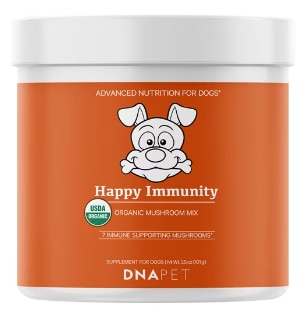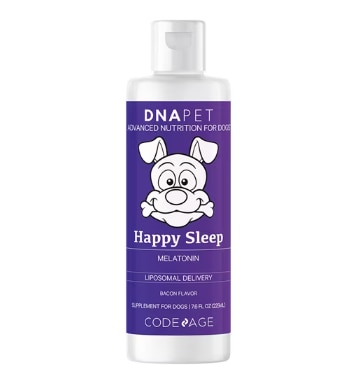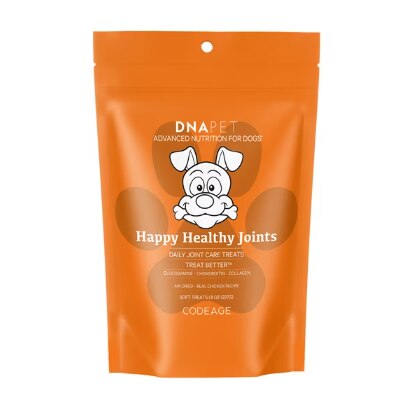As a pet parent, it is vital to prioritize your furry friend’s well-being. Regular vet check-ups, sufficient exercise and nutritious food are essential for maintaining your pup’s health. However, you can add an extra layer of assurance by providing them with supplements, just as you would for your own nutrition needs.
Choosing the right pet supplements for your dog can be challenging due to the need for more regulatory oversight in nutraceutical manufacturing. Dr. TB Thompson, a veterinarian with over two decades of experience treating cats and dogs in emergencies, during house calls and at his general practice in Phoenix, AZ, advises pet owners to be cautious when selecting pet supplements.
Below, Thompson offers guidance on what to consider when selecting pet supplements for your dog.
Types of supplements for dogs
There are various types of supplements available in the market for dogs, each with its own unique formula. These supplements come in different forms, such as capsules, powders, liquids and pellets, making it easy to choose the one that suits your dog’s preference.
Immunity boosters are one of the most popular types of supplements for dogs. They help to support healthy immune function and protect your pet from health issues. Codeage’s Organic Mushroom Mix Powder is an excellent immunity booster that contains a blend of organic mushrooms that provide essential nutrients for your dog’s health.
Another type of supplement to consider is nutrient-dense products that contain natural sources of vitamins and minerals. These supplements, such as organ and gland powder, are a great way to provide your dog with necessary nutrients that may be lacking in their diet.
Joint health supplements are another popular option for dogs, especially older dogs or those with joint problems. Glucosamine is a commonly used ingredient in joint health supplements for its potential ability to promote a healthy inflammatory response and joint mobility.
If your dog has skin issues or dry skin, supplements such as fish oils are a popular choice. These supplements contain omega-3 fatty acids that support the skin and coat of your furry friend. Probiotics are also helpful for some dogs. They’re popular for dogs with digestive and gut health issues such as diarrhea and constipation, among others. Finally, some dogs may benefit from sleep and anxiety aids such as pet-safe melatonin. This supplement may be especially useful when traveling away from home or during stressful situations.
How to check labels on supplements for dogs
When selecting a pet supplement, there are several important factors to consider. According to Thompson, one of the most crucial aspects is the product’s label. The label should clearly display the lot number and expiration date to ensure the product’s freshness and viability. Additionally, the label should showcase the USP Verified Logo, certifying that the ingredient labeling is accurate, as documented by the US Pharmacopeia.
Read ingredients lists
“A clear list of ingredients and straightforward instructions for use are essential for the pet’s safety and the owner’s peace of mind,” Thompson explains. The label should provide easy-to-read ingredients, allowing pet owners to make informed decisions about what their pets are consuming. It should also include straightforward instructions for use to ensure the pet’s safety, including dosage amounts (typically by weight), timing and any other crucial information.
When considering supplements for dogs, it’s essential to think about not just what the ingredients are but also how they are sourced and processed. Depending on your dog’s needs, you may wish to look for products that are non-GMO, BSE-free, gluten-free, corn-free, grain-free and free of artificial ingredients if these factors are important to you. This will help ensure your pet gets the best possible nutrients without harmful additives.
Additionally, choosing supplements manufactured in a cGMP-certified facility in the USA is a good idea. This certification indicates that the facility has met strict standards for quality and purity, giving you peace of mind that you’re giving your pet the highest quality supplements available.
Choose science-backed formulas
It’s important to prioritize products backed by credible scientific evidence. Before purchasing a supplement, Thompson recommends that pet owners explore the manufacturer’s website or other reputable sources to verify the claims about the product’s effectiveness. This helps confirm that the product is safe and effective for pets.
It’s also a good idea to consider the science behind how a supplement may or may not work for your dog’s individual needs. Just as humans have unique nutritional needs, dogs do, too. Some dogs can tolerate grains, while others may have difficulty digesting them. Similarly, some dogs may require varying amounts of specific nutrients or may be predisposed to certain breed-related issues that can be addressed with supplements.
It’s always best to have an open and honest discussion with your veterinarian to determine the best course of action for your dog’s specific needs. Your vet can help you identify any nutritional deficiencies or health concerns that may benefit from supplementation and can also recommend the most appropriate type of supplement for your dog’s age, breed and overall health. Ultimately, by working collaboratively with your vet, you can help ensure your furry friend gets the best possible care and nutrition to support a happy and healthy life.
Check for NASC membership
Lastly, Thompson suggests considering the manufacturer’s membership in the National Animal Supplement Council (NASC) when looking for a pet supplement. NASC membership indicates adherence to quality and safety standards, as it helps member companies align with FDA guidelines. By prioritizing products that meet these standards, pet owners can feel confident in providing their pets with the best possible care.
Choosing supplements for dogs: Be sure to discuss with your vet
While the above guidelines for evaluating the safety and efficacy of pet supplements are a great starting point, it is still a complex task. Thompson recognizes the importance of seeking professional guidance before introducing any new products to your pet. She strongly advises pet owners consult with their veterinarian to ensure supplements are safe and worthwhile for furry family members.
Veterinarians have the knowledge and expertise to assess the risks and benefits of the supplement, taking into account your pet’s medical history, age, and overall health. It’s always better to err on the side of caution and involve a professional in the decision-making process regarding your pet’s health and well-being.




